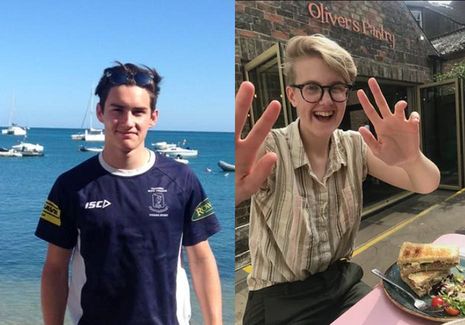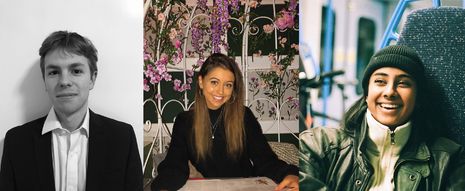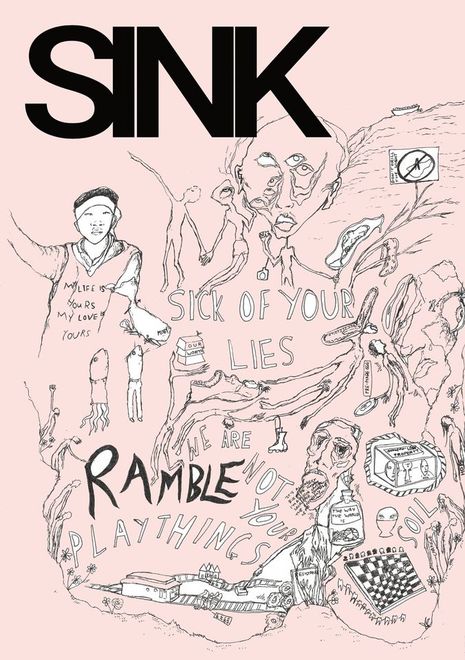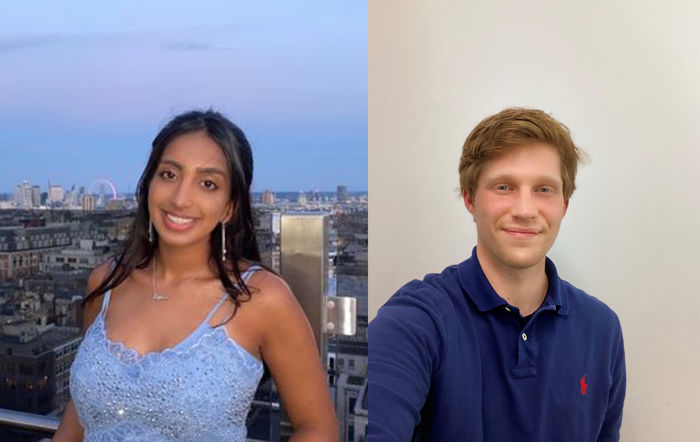Lockdown Innovations 2
In the second installment of our series ‘Our New World’ on the lives of students in post-Covid-19 Cambridge, Ewan Woods and Alice LC speak to two undergraduates about their lockdown initiatives

As we enter our second lockdown, the first seems like a distant memory long ago. But as the UK and countries around the world battle fiercely to get the coronavirus under control, some Cambridge students were able to put their creative minds to work and innovate brilliantly among these uncertain times.
For James Lloyd, a fourth year at Queens and his multi-collegiate team, Hector (Fitzwilliam), Ilakya (Magdalene) and Ella (Trinity Hall) it was the opportunity to begin working on Genchi.
“Lockdown gave us the chance to do most of our market research” says Hector, with the break in time allowing for the whole team to pursue the development of the app.
“We had been talking about this for almost a year now, with lockdown giving us that opportunity to fill that gap in the market”
Genchi, a name derived from a Japanese manufacturing term meaning “go and see”, was born out of a perceived need for freelancing experience in Cambridge. It hopes to fill this gap and connect enthusiastic freelancers and students, whether it be one time work such as creating new logos, or long term positions within societies.
For James and the team, the vision they developed for the app was clear. “We as a group decided on a mission, what we’re doing and what we care about. The thing we decided on was that we wanted to empower people to make their own impact, and by providing them with opportunities people can make that impact, and have real influence over a project”.
“I think something that we realised” Hector mentioned “was that there wasn’t a central platform for societies, they were going through word of mouth and other contacts, and it was quite hard to get a reply. And on the other side of things, people wanted to find other opportunities, but they weren’t able to do it within their own schedule.”
The app took three months to develop, with both James and Ilakya heading the development as first-time coders. “We had been talking about this for almost a year now, with lockdown giving us that opportunity to fill that gap in the market”.

The initial soft launch of the app in July allowed for any difficulties in the system to be ironed out, whilst letting interest in Genchi slowly build. In its current state, Genchi has accumulated a user base of over 400 people since its launch, with the app hosting all kinds of jobs, whether it be tutorials for PowerPoint plug-ins, society ents officers or requesting a portrait of housemates for the wall (yes really!).
The app itself has clear potential for growth. Graphic design work for charities was one of the first listings on the app, and other new Cambridge developments like ‘Genie’, the snack based delivery service, have also made listings for work on Genchi, showing a clear future for the app outside of positions in university societies too.
But for Frankie and Antonia, two second-year undergraduates at Clare, lockdown presented the chance to develop something entirely different: ‘SINK’ - a Northern left-wing magazine. A first issue was successfully released and the second issue is about to come out soon.
They speak about their work with contagious enthusiasm, their passion behind the project is clear.
“We are very excited about the cultural aspect of the magazine, which gives to politics an artistic dimension. The magazine is overall more fluid in its creativity, it incorporates poetry, artwork, prose,” says Frankie. They note how the magazine was related to and building on one of its current editor’s Ria’s online magazine from school, ‘Petty Bourgeoisie’, which aims to uplift Northern voices too.
“This time, we also had more tools in our hands: at university, we developed a wider range of connections, which subsequently enabled a broader reach. We want to represent the North as diverse as it is,” they say.
“We noticed that there was a lack of opportunities in the North, as seen for example in schools. The impression of this observation was further reinforced when arriving in Cambridge,” says Antonia. “The magazine is a way to help people access a skill and an experience… as many opportunities as there are in the North, from my personal experience, there would never have been an opportunity for me to contribute to a magazine like SINK.”
“Having this exposure can have a lasting impact in people’s lives”
“Having this exposure can have a lasting impact in people’s lives,” she adds.
“It is important to have a magazine that is rooted in and empowers Northern voices,” says Frankie. “It is not something that we had in our experiences and this impression was reinforced when coming to Cambridge.”
“There is a diversity of experiences in the North which have to be explored,” they add.
The magazine has a uniquely minimalist aesthetic, which Antonia says came from Northern realist and industrial aesthetics. “We drew a lot from the aesthetic of prominent Northern creators such as ShelaghDelaney and groups such as the ’angry young men. We also looked at Kitchen Sink Realism, which is where we got our name from”.
“Some elements of the aesthetic just came along progressively, notably through the high number of submitted artwork,” says Frankie. “A lot of it was about playing around with colors and fonts and getting constant opinions. We did not necessarily have a clear vision of what we wanted it to look like.”

The magazine is entirely self-funded, and fifty percent of profits go to African Rainbow Family, which works to support LGBT+ people of colour and immigrants. “We sold the magazine for a price that we thought to be accessible but that would also ensure that we keep afloat,” says Antonia.
The theme of the first issue was ‘passion’ and Frankie argues one of the central themes was masculinity. “As a trans man, I feel like there are hardened conceptions of masculinity so I would like to provide an insight into a queer experience of masculinity,” they say.
“I envision it as something that can be intimate, it is important to provide a space for men to explore their masculinity through a personal lens”. The second issue, on the other hand, will spotlight love, sex and the body. “It will revolve a lot around the personal and attempts to provide an understanding of how politics extremely affect us on an individual level,” says Frankie.
But dealing with difficult themes such as intimacy can be very sensitive, something Antonia is very aware of.
“I think it can be a difficult thing for anyone to tackle intimate issues so we did not want them to dig into experiences of trauma. Instead, it was more about using a creative process to move through something and generate renewal,” she says. “We believe in a more positive approach in which people can address the issues they have had and we want to host a diversity of experiences.”
Ultimately, she says, “knowing the people you are giving your work to allows more accessibility. We do not want to be just a publication but also a community”.
 Comment / Plastic pubs: the problem with Cambridge alehouses 5 January 2026
Comment / Plastic pubs: the problem with Cambridge alehouses 5 January 2026 News / Cambridge businesses concerned infrastructure delays will hurt growth5 January 2026
News / Cambridge businesses concerned infrastructure delays will hurt growth5 January 2026 News / New movement ‘Cambridge is Chopped’ launched to fight against hate crime7 January 2026
News / New movement ‘Cambridge is Chopped’ launched to fight against hate crime7 January 2026 News / AstraZeneca sues for £32 million over faulty construction at Cambridge Campus31 December 2025
News / AstraZeneca sues for £32 million over faulty construction at Cambridge Campus31 December 2025 Interviews / You don’t need to peak at Cambridge, says Robin Harding31 December 2025
Interviews / You don’t need to peak at Cambridge, says Robin Harding31 December 2025










